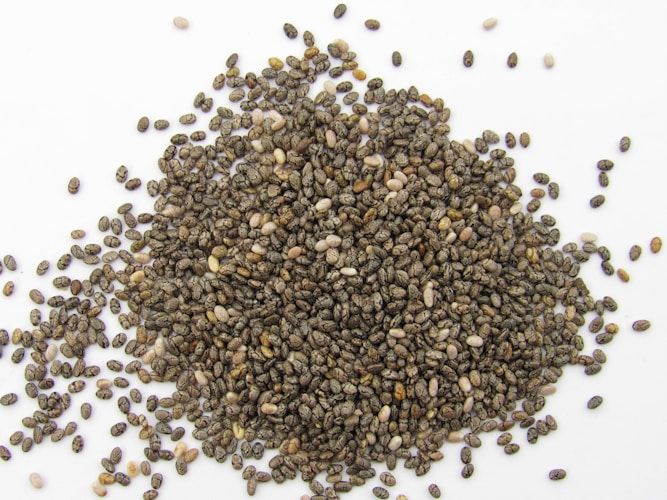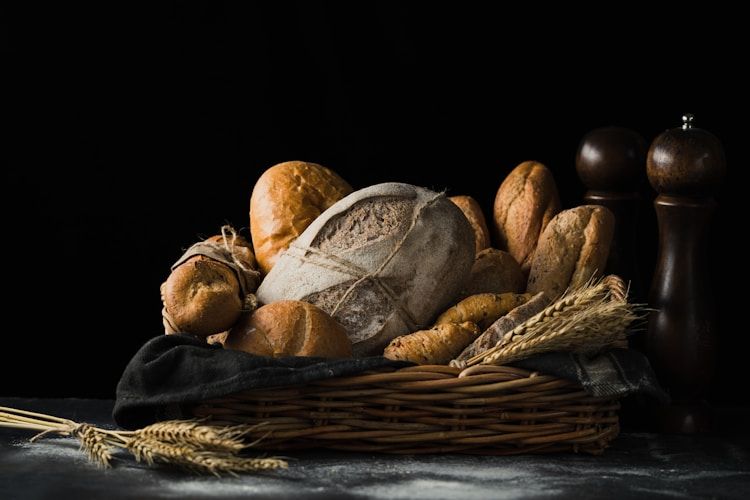Top 10 Fiber Foods to Eat for Better Digestion
Dietary fiber plays a crucial role in maintaining a healthy digestive system. It supports bowel regularity, helps manage weight, and can reduce the risk of chronic diseases like heart disease and diabetes. Yet, despite its importance, many people fall short of the recommended daily intake of fiber. To improve digestion and overall gut health, it’s essential to include fiber-rich foods in your diet. This article highlights the top 10 fiber foods that can aid digestion and help you feel your best.
What is Dietary Fiber?
Dietary fiber is the indigestible part of plant foods that passes through the digestive tract mostly intact. There are two main types of fiber: soluble and insoluble.
- Soluble fiber dissolves in water and forms a gel-like substance in the gut. It helps to lower cholesterol levels and stabilize blood sugar levels.
- Insoluble fiber does not dissolve in water and adds bulk to the stool, helping to move food through the digestive system more efficiently. It is particularly beneficial for promoting regular bowel movements and preventing constipation.
Both types of fiber are essential for optimal digestion and offer distinct health benefits. A balanced diet should ideally include a mix of both soluble and insoluble fiber.
Why Fiber is Important for Digestion
- Promotes Regularity: Insoluble fiber adds bulk to the stool, making it easier to pass through the intestines. This can help prevent constipation and promote regular bowel movements.
- Balances Gut Health: Fiber acts as a prebiotic, feeding the beneficial bacteria in the gut. A healthy gut microbiome supports digestion, immune function, and overall well-being.
- Reduces Digestive Disorders: A high-fiber diet has been linked to a lower risk of digestive disorders like diverticulitis, irritable bowel syndrome (IBS), and hemorrhoids.
- Prevents Overeating: Fiber-rich foods are often low in calories but high in volume, making you feel fuller for longer and reducing the likelihood of overeating.
Now that we understand the importance of fiber, let’s dive into the top 10 fiber-rich foods that can improve digestion.
1. Chia Seeds – One of the best fiber foods

Fiber Content: 10 grams per ounce (28 grams)
Chia seeds are a powerhouse of fiber, with an impressive amount of soluble fiber that can absorb up to 10 times their weight in water. This property makes them excellent for supporting digestive health by forming a gel-like substance in the intestines, which helps regulate bowel movements and improve hydration in the digestive tract. Chia seeds also contain omega-3 fatty acids, antioxidants, and plant-based protein, making them a nutritious addition to smoothies, yogurt, or oatmeal.
Health Benefits:
- Helps with constipation relief.
- Supports gut hydration and smooth digestion.
- Can aid in weight management due to their satiating nature.
2. Lentils
Fiber Content: 15.6 grams per cooked cup (198 grams)
Lentils are an excellent source of both soluble and insoluble fiber. They are particularly rich in resistant starch, a type of fiber that resists digestion in the small intestine, and instead acts as food for beneficial gut bacteria. This fermentation process produces short-chain fatty acids, which nourish the colon and support healthy digestion. Lentils are also packed with plant-based protein and a variety of vitamins and minerals.
Health Benefits:
- Supports gut health and regularity.
- Can help lower cholesterol levels and stabilize blood sugar.
- Rich in folate and iron, supporting overall health.
3. Oats
Fiber Content: 4 grams per 1/2 cup cooked
Oats are well-known for their ability to improve digestion, thanks to their high content of soluble fiber, particularly beta-glucan. Beta-glucan helps lower cholesterol levels and supports heart health while promoting a healthy gut microbiome. Oats also contain prebiotic fibers that feed beneficial bacteria in the gut, contributing to overall digestive wellness.
Health Benefits:
- Improves bowel movement frequency and consistency.
- Lowers cholesterol and stabilizes blood sugar.
- Supports heart and gut health.
4. Apples
Fiber Content: 4.4 grams per medium apple (182 grams)
Apples are rich in soluble fiber, particularly pectin, which forms a gel-like substance in the gut that aids digestion and helps lower cholesterol levels. Apples also provide a good amount of water, which helps soften stools and promotes regularity. The combination of fiber, water, and antioxidants in apples makes them a digestive powerhouse.
Health Benefits:
- Supports healthy digestion and gut function.
- May help with weight management by promoting fullness.
- Packed with antioxidants that protect digestive health.
5. Sweet Potatoes
Fiber Content: 4 grams per medium sweet potato (114 grams)
Sweet potatoes are an excellent source of both soluble and insoluble fiber. The fiber content in sweet potatoes can help regulate bowel movements and promote the growth of beneficial gut bacteria. In addition, sweet potatoes are rich in vitamins A and C, which help maintain a healthy gut lining and reduce inflammation in the digestive tract.
Health Benefits:
- Supports regular bowel movements and reduces constipation.
- Rich in antioxidants that help protect the digestive system.
- A good source of vitamin A, which is important for gut lining health.
6. Broccoli
Fiber Content: 5 grams per 1/2 cup cooked (78 grams)
Broccoli is a fiber-rich cruciferous vegetable that provides a significant amount of both soluble and insoluble fiber. It also contains compounds like sulforaphane, which have been shown to have anti-inflammatory and antioxidant effects, promoting gut health and reducing the risk of digestive diseases. Broccoli is particularly beneficial for people looking to improve their digestive enzyme production and support gut motility.
Health Benefits:
- Reduces inflammation in the digestive tract.
- Enhances digestive enzyme production for better nutrient absorption.
- Supports regular bowel movements and gut health.
7. Avocados
Fiber Content: 10 grams per medium avocado (150 grams)
Avocados are an excellent source of both soluble and insoluble fiber, making them a great food for supporting digestion. The soluble fiber in avocados helps to slow down digestion, allowing for better absorption of nutrients, while the insoluble fiber promotes bowel regularity. Avocados also contain healthy fats that can help keep the digestive system lubricated.
Health Benefits:
- Improves bowel regularity and reduces constipation.
- Provides healthy fats that support gut health.
- High in potassium, which helps maintain electrolyte balance for proper digestion.
8. Raspberries
Fiber Content: 8 grams per 1 cup (123 grams)
Raspberries are not only delicious but also packed with fiber, particularly insoluble fiber, which adds bulk to the stool and helps move food through the digestive tract. Additionally, the soluble fiber in raspberries helps regulate blood sugar levels and supports heart health. Their high antioxidant content also supports a healthy gut and reduces inflammation.
Health Benefits:
- Promotes regular bowel movements and prevents constipation.
- Supports gut microbiota balance and digestive health.
- Rich in antioxidants that protect the digestive system from oxidative stress.
9. Brussels Sprouts
Fiber Content: 4 grams per 1/2 cup cooked (78 grams)
Brussels sprouts are another cruciferous vegetable that’s high in fiber, particularly soluble fiber. They also contain glucosinolates, compounds that have been shown to support digestive health by promoting the growth of beneficial bacteria in the gut. Additionally, Brussels sprouts provide a good source of vitamin K, which is essential for maintaining a healthy gut microbiome.
Health Benefits:
- Improves gut health by supporting beneficial bacteria.
- Promotes healthy digestion and regularity.
- Packed with antioxidants and vitamin K for overall gut and immune support.
10. Beans (Black Beans, Kidney Beans, Chickpeas)
Fiber Content: 15 grams per cooked cup (177 grams)
Beans are some of the best sources of fiber, providing both soluble and insoluble varieties. They are rich in resistant starch, which acts as a prebiotic and promotes healthy gut bacteria. Beans are also high in protein, making them a great plant-based source of nutrition for those looking to support both digestive and overall health.
Health Benefits:
- Supports healthy gut bacteria and improves digestion.
- Helps prevent constipation and supports regular bowel movements.
- Rich in plant-based protein, making them an excellent food for vegetarians and vegans.
Final Thoughts
Incorporating a variety of fiber-rich foods into your diet is an effective way to support healthy digestion. Fiber not only helps to promote regularity and prevent constipation, but it also supports the growth of beneficial gut bacteria, reduces inflammation, and may lower the risk of chronic diseases. Aim to eat a balanced mix of both soluble and insoluble fiber from a range of sources, including fruits, vegetables, legumes, whole grains, and seeds.
By adding these 10 fiber-packed foods to your meals, you’ll be well on your way to improving digestion, enhancing gut health, and boosting overall well-being.
Stay in Touch!
Ready to unlock your full potential? Subscribe to our newsletter for the latest in biohacking tips, tools, and strategies to optimize your health and performance!
This post may contain affiliate links, which means we may earn a small commission if you make a purchase through them, at no extra cost to you.








